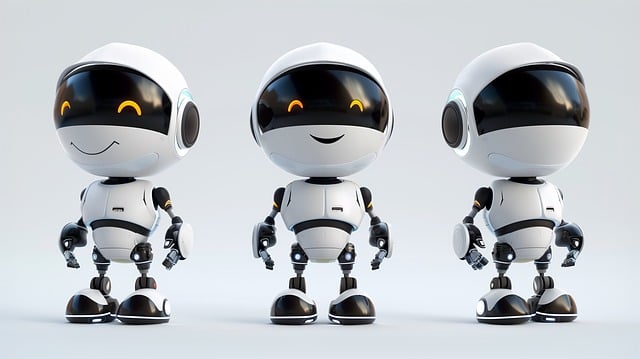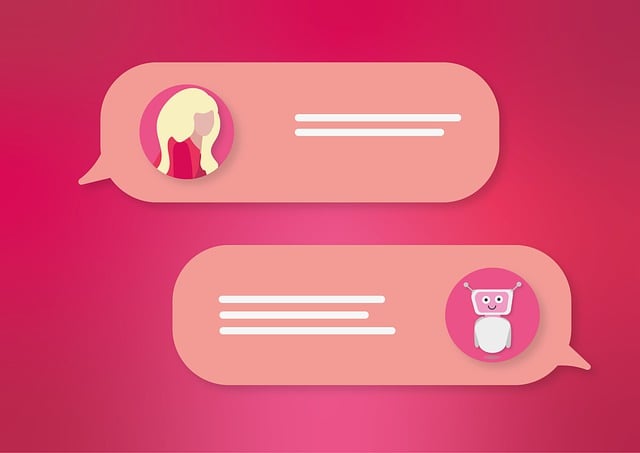Chatbot AI stands at the forefront of artificial intelligence, blending sophisticated natural language processing with advanced machine learning to interact with humans in a conversational manner. These systems are engineered to process and respond to language with coherence and contextual awareness, enhancing user engagement and satisfaction across various platforms. By leveraging intricate algorithms and extensive datasets, chatbots can understand patterns within user queries, enabling them to deliver precise and relevant responses, either through programmed rules or by evolving their understanding and capabilities iteratively via machine learning. The dual architecture of chatbot AI—combining rule-based systems with deep learning models—allows for a learning capacity that refines its grasp of language nuances and user intent over time. As the field advances, chatbots are expected to become even more adept at managing complex conversations, further solidifying their importance in customer service and personal assistance, and expanding into critical fields like healthcare and education. The future of chatbot AI is promising, with advancements set to break down language barriers and foster global communication, all while offering tailored interactions that could redefine human-machine interaction.
Chatbot AI has revolutionized digital communication, seamlessly bridging the gap between humans and machines. This article unravels the intricacies of chatbot technology, from its foundational concepts to the advanced mechanisms that power its conversational prowess. We’ll explore the vital role of Natural Language Processing in programming chatbots, the transformative impact of machine learning on their evolving capabilities, and the practical applications that underscore their growing significance. Join us as we delve into ‘Understanding Chatbot AI: The Basics of Chatbot Technology,’ dissect ‘The Anatomy of a Chatbot: Components and Mechanisms,’ and examine ‘Machine Learning and Chatbots: Evolving Conversational Capabilities.’ Furthermore, we’ll discuss the future potential of chatbot AI in ‘Implementing Chatbot AI: Practical Applications and Future Potential.’
- Understanding Chatbot AI: The Basics of Chatbot Technology
- The Anatomy of a Chatbot: Components and Mechanisms
- Programming Chatbots: The Role of Natural Language Processing (NLP)
- Machine Learning and Chatbots: Evolving Conversational Capabilities
- Implementing Chatbot AI: Practical Applications and Future Potential
Understanding Chatbot AI: The Basics of Chatbot Technology

Chatbot AI represents a fascinating intersection of artificial intelligence, natural language processing, and machine learning. At their core, chatbots are designed to understand, interpret, and respond to human language in a manner that is both coherent and contextually relevant. They achieve this by leveraging complex algorithms capable of parsing text or voice input. These algorithms work to identify patterns within the data they receive, enabling them to categorize user queries and deliver appropriate responses based on pre-defined rules or machine learning models.
The architecture behind chatbot AI typically involves a combination of rule-based systems and AI-driven models. Rule-based systems rely on a set of if-then statements programmed by developers to handle specific tasks or questions. Conversely, AI-driven models use advanced techniques like deep learning to analyze vast amounts of data and improve their responses over time. This adaptive capability is particularly potent as it allows chatbots to learn from each interaction, refining their understanding of language nuances and user intent. The integration of chatbot AI into various platforms and services demonstrates its versatility and potential to enhance user experiences across numerous applications. Understanding the intricacies of chatbot technology is pivotal for grasping how they can be effectively utilized in both customer service and as personal assistants, revolutionizing the way we interact with machines.
The Anatomy of a Chatbot: Components and Mechanisms

Chatbots are sophisticated AI-driven tools that simulate human conversation through text or voice interactions. At their core, chatbots consist of several key components that enable them to function effectively and understand user input. The foundational element is natural language processing (NLP), which allows the chatbot to interpret and respond to messages in a way that feels natural and coherent. This component relies on complex algorithms and machine learning models trained on vast datasets to comprehend the context and nuances of human language.
The conversational logic, another essential aspect, dictates how the chatbot processes queries and constructs responses. It is here that AI shines, as the chatbot uses decision trees, pattern recognition, and semantic understanding to generate appropriate and accurate answers. This logic is often supported by a database or API integration, which provides the chatbot with access to external information or services, enhancing its ability to fulfill user requests and deliver value in real-time. Additionally, machine learning enables the chatbot to learn from interactions, continuously improving its performance and accuracy over time through reinforcement and supervised learning techniques. This adaptive nature ensures that as user needs evolve, chatbots remain effective and relevant in the dynamic landscape of AI-driven communication.
Programming Chatbots: The Role of Natural Language Processing (NLP)

Chatbots have become a ubiquitous presence in the digital landscape, leveraging artificial intelligence to communicate with users in natural language. At the heart of this technology lies Natural Language Processing or NLP, which enables chatbot AI to understand and interpret human language with remarkable accuracy. NLP encompasses a range of computational techniques that facilitate the interaction between humans and machines. It involves the extraction of meaning from text or speech by parsing grammatical structures, recognizing semantic elements, and processing syntax to construct coherent responses. The sophistication of NLP has evolved over the years, incorporating machine learning algorithms and deep neural networks to improve the chatbot’s ability to comprehend context, manage ambiguity in language, and adapt to a wide array of conversational scenarios. As such, chatbot AI is not merely about mimicking human conversation but entails the intricate task of understanding the subtleties of human communication across diverse cultural and linguistic backgrounds. The integration of NLP into chatbots empowers these systems with the capability to handle complex queries, engage in more meaningful interactions, and deliver a seamless user experience that rivals human-to-human communication. This advancement not only enhances customer service but also opens up new horizons for AI applications across various sectors, from healthcare and finance to education and beyond.
Machine Learning and Chatbots: Evolving Conversational Capabilities

Chatbot AI systems have undergone a significant transformation in their conversational capabilities, largely due to advancements in machine learning. These intelligent agents now leverage complex algorithms and vast datasets to understand and respond to human language with increasing sophistication. Machine learning models, particularly those based on deep learning techniques such as neural networks, enable chatbots to process natural language input, recognize context, and generate relevant responses in real-time. This progression is a result of the continuous refinement of natural language processing (NLP) technologies, which are integral to interpreting human communication effectively. The integration of these AI models with chatbots has led to more coherent, contextually appropriate, and personalized interactions, enhancing user engagement and satisfaction. As machine learning continues to evolve, we can expect chatbot AI to become even more adept at handling nuanced conversations, making them an indispensable tool across various industries for customer service, information retrieval, and beyond.
Implementing Chatbot AI: Practical Applications and Future Potential

Chatbot AI technology has seen significant advancements, with practical applications now spanning a multitude of industries. These intelligent systems are designed to simulate human conversation by utilizing natural language processing and machine learning algorithms. Implementing chatbot AI involves integrating these technologies into customer service platforms, where they can handle inquiries, provide support, and improve user engagement. The versatility of chatbots allows them to operate across various channels such as websites, social media platforms, and messaging applications. As they process and learn from interactions, chatbot AI continuously refines its understanding of context and intent, enabling it to offer increasingly personalized responses. This iterative improvement cycle not only enhances the user experience but also streamlines operations for businesses by automating routine tasks and freeing human agents to focus on more complex issues.
Looking ahead, the future potential of chatbot AI is vast and promising. As machine learning models become more sophisticated, these systems will be able to handle even more nuanced conversations with greater accuracy. The integration of advanced technologies such as deep learning and emotional recognition could enable chatbots to respond to a wider range of human emotions and behaviors. This progression opens up new horizons for chatbot AI in areas like mental health support, educational tutoring, and personalized entertainment. Moreover, the ongoing development of these systems promises to break down language barriers, making global communication more accessible than ever before. The evolution of chatbot AI signifies a future where human-computer interactions become increasingly seamless, leading to an array of new applications that have yet to be fully imagined.
Chatbot AI has undeniably revolutionized the way we interact with digital platforms, transforming the once-static user experiences into dynamic and conversational ones. From the foundational aspects of their technology to the sophisticated applications of machine learning, understanding chatbots requires a comprehensive look at their components, mechanisms, and the role of natural language processing. As illustrated throughout this article, from ‘Understanding Chatbot AI: The Basics of Chatbot Technology’ to ‘Machine Learning and Chatbots: Evolving Conversational Capabilities’, chatbots are not merely programmed responses but are sophisticated systems capable of learning and improving over time. Their practical applications span numerous industries today, with future potential suggesting even greater integration into our daily lives. As these AI entities continue to evolve, they promise to deliver ever more seamless interactions, making chatbot AI a critical component in the ongoing advancement of human-computer communication.
